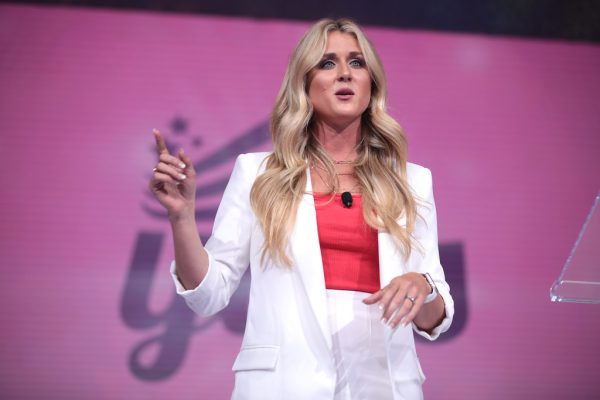Nationalism During a Global Pandemic
April 25, 2020
The global spread of COVID-19, from its most likely origins in a provincial wet market in Wuhan, China, has truly shown a virus that knows no borders. In a world composed of a collection of sovereign nations, and different leaders engaging amongst each other trying to advocate for their domestic interests, the notion of nations actually not coming together to battle the common enemy has become a real possibility. Very quickly, America has become ground zero for this pandemic, with a death toll in excess of 20 thousand and expected to reach somewhere between 40 to 100 thousand. The human loss is on top of the damage to the economy that runs into trillions of dollars. While our own country might be facing a crisis, we also know that countries around the world are dealing with the same issue. Whether it be travel, international manufacturing and trade or immigration, it is safe to say that the world is not going to go back to the way it was before this pandemic. Whether countries are going to increase their cooperation in order to fight what is essentially a common enemy, or retreat within their borders because each country feels that they can isolate themselves from such future occurrences, has quickly become an essential question.
In the US, we’re already hearing a debate shape up on what the future is going to look like when it comes to our global standing. “There’s kind of two possibilities, as in whether every country or even smaller unison countries are going to try to isolate themselves and only take care of themselves or if we will start to see this more and more as a truly global issue that we all are in together. I think the hope is always that when people have, for lack of a better word, a common enemy, that’s the best thing to bring people together,” says Upper School history teacher, Dr. June.
Dr. June notes that the creation of the World Health Organization (WHO) is an example of the post World War II “international view that rejected isolation nationalism.” He explains that the WHO “was formed very early on in the history of the United Nations, in 1948, and as part of the bigger goals of the United Nations, which was very much a response to this global tragedy that was WWII, and enough people realizing that nationalism and war were not going to be sustainable, and so we had to find other ways to work together and find peaceful solutions to problems.”
But the decision between further isolating or preserving our global supply chain goes beyond a “common enemy,” as Dr. June mentioned earlier. “I just don’t think it’s possible for us to be isolationist in the way that we would think about it like in the 1930s. It was barely possible then, and now I mean, even somebody like president Trump is touting how we got all this protective equipment from Vietnam,” says Dr. June. He adds that “just the way our economy works these days, and how manufacturing works, we can’t be a fully isolationist country. We’re very dependent on other countries, as much as they are dependent on us for things.”
In addition to markets, education is another factor in just how closed off we may become. Dr. June says, “I just don’t see it as feasible for us to think we’re not going to have international students coming to the US anymore; anymore than it would be feasible for us to say we’re not going to have military bases all over the world. Or we’re not going to do most of our manufacturing outside of this country. So certainly those things are going to change, but I don’t think they’re going to go away.” He also adds that “international students and lots of other folks, who come to the US to work are an essential part of our economy and our country’s development, and so I would hate to see us give those things up no matter what happens.” While our own economy is dependent on places outside of the US, the question of what we bring into the US provokes further inquiry. Whether it be college students’ exposure to foreign perspectives or the immigrant contribution to the job market.
Many are speculating that in response to the pandemic, President Trump will create policies to repatriate our supply chains. Dr. June provides a simplified answer to why global manufacturing was attractive in the first place, “I will say that the one thing with bringing manufacturing back [to the US] is that manufacturers didn’t just go to start making stuff in China because China makes a better product, they did that because of differences in labor laws, minimum wage requirements, unions, and all kinds of things that they didn’t want to have to deal with here.” He adds that, in regards to the “labor laws, minimum wage requirements, and unions” that the US could avoid if they moved manufacturing to places like China, “if manufacturing did come back, which a lot of people would argue would be fantastic, there would have to be some of those changes that were made too.”
The advantages and disadvantages of both the possibility of repatriating and preserving our international supply chain are numerous. Junior Rashail Wasim, co-head of Discourses, Latin’s political magazine, believes that “it’s good that America is realizing the dangers of having critical industries like pharmaceuticals outsourced to foreign countries. Globalization has gone too far, and America must support a strong, domestic industry to prevent any shortages of needed goods from arising again. This pandemic is the price we are paying for opening up our economy and borders to a hostile regime.”
Fellow junior and Discourses head Ashley Rosenberg notes, “How Trump tried to buy the German firm working on a vaccine for COVID-19 and how his administration tried to impose a ban on the exporting of N95 masks, further reinforcing the ‘America first’ mentality he and his administration have had.” Unlike Rashail, she believes, “these actions are not easily remedied or apologized for, and our allies will not forget how we acted during this crisis, possibly leading to further breakdowns in diplomatic relationships. Additionally, the disruptions in international supply chains due to the closing of borders will most likely result in stronger domestic supply chains, meaning America will be more self-sufficient, further reinforcing an isolationist mindset. All in all, I think this crisis will embolden our leaders’ isolationists tendencies which in the long run will only hurt us, as globalization has increased our levels of innovation and economic success.”
It’s important to note that the direction with which this country goes is not based upon the decision of one person, company, or policy. It is based upon where we, as consumers, choose to buy our goods, if we are willing to pay a premium for domestically manufactured goods, if companies choose to outsource their manufacturing, and many other factors. We, as a collective, have a stake in the future of our country’s direction based on the everyday choices we make on what, how, and where we buy.


























































